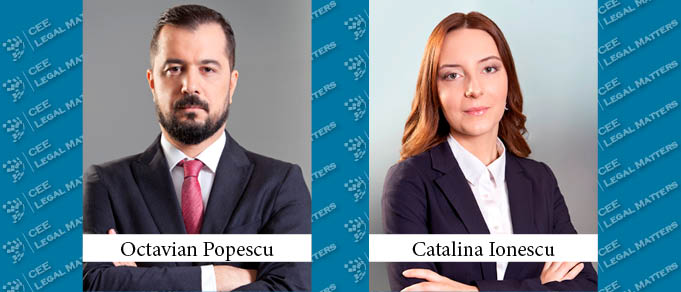In the context of the significant inflation of laws and administrative regulations in Romania, many of them representing or deriving from European Union (“EU”) normative acts, one important risk to be considered by foreign investors should be that the legislation process that regulates the permitting process is constantly modified. Moreover, most administrative permits, such as, for example, environmental permits or operating licences, are valid only for a limited period. Thus, the necessity to renew the permits and licences after important investments have already been made by the investors may represent a real challenge.
Naturally, the following question arises: what remedies are available to foreign investors if the authorities either refuse to grant the renewal of the required permit or licence or prolong for unjustified reasons the administrative proceedings, while the corresponding economic activity cannot be performed in the absence of the administrative permit?
Surely, there is always the possibility of challenging the administrative acts or the refusal of the authorities before the national courts of law, but in some cases, this course of action could prove ineffective, considering that in some cases the judicial proceedings are time consuming. Under these conditions, more pressuring courses of action could be identified, more specifically the recourse to international arbitration.
Over the time, Romania has concluded over one hundred bilateral investment treaties (“BIT”), whereas over twenty are intra-EU BITs. The BITs generally provide the possibility of foreign investors to refer their disputes with the host State (Romania) either to an arbitral tribunal constituted under the auspices of the International Centre for the Settlement of Investment Disputes (“ICSID”, “ICSID tribunal”) or to an ad hoc arbitral tribunal established under the arbitration rules of the United Nations Commission on International Trade Law (“UNICTRAL”).
However, the interaction between EU law and international arbitration (with a focus on investment arbitration) has been marked by the drastic intervention of the European Commission which has asked in 2015 the member states to denounce the BITs concluded within the EU, arguing that they contrary to the EU order. The European Commission has also requested its intervention as amicus curiae within the arbitral proceedings initiated by investors against EU member states, while also pleading for the arbitral tribunals to recognize their lack of jurisdiction.
In this context, after Achmea BV has obtained an arbitral award against the Slovak Republic based on the BIT concluded in 1991 between the Kingdom of the Netherlands and the Czech and Slovak Federative Republic, the Slovak Republic brought an action to set aside that arbitral award before the German courts. Within the proceeding of setting aside the arbitral award, the Slovak Republic expressed doubts as to the compatibility of the arbitration clause within the BIT with the provision of the EU law and the court has referred the preliminary question to the Court of Justice of the European Union.
Thus, on 6 March 2018, the Court of Justice of the European Union has rendered its decision in the case C284/16 Slowakische Republik v. Achmea BV (“the Achmea decision”) stating that the EU law must be interpreted as “precluding a provision in an international agreement concluded between Member States, such as Article 8 of the Agreement on encouragement and reciprocal protection of investments between the Kingdom of the Netherlands and the Czech and Slovak Federative Republic, under which an investor from one of those Member States may, in the event of a dispute concerning investments in the other Member State, bring proceedings against the latter Member State before an arbitral tribunal whose jurisdiction that Member State has undertaken to accept.”
Consequently, many authors and practitioners started to question the future of investment arbitration involving an EU member state. More specifically, could a foreign investor still successfully refer its dispute with the Romanian state either to an ICSID tribunal or to an ad hoc arbitral tribunal even when their dispute relates to a field of activity which is governed including by EU law?
While the matter has not been settled yet in a clear cut manner, several aspects should be analysed in order to assess the possibility of foreign investors to refer their disputes with the Romanian state either to an ICSID tribunal or an ad hoc arbitral tribunal and, should they succeed, the possibility of enforcing the arbitral award.
Firstly, even though Romania is under the obligation to terminate the BITs concluded with other member states and it has also adopted a law that approves the termination of said BITs, Romania has not notified the termination of the treaties nor has it executed termination agreements. Since most BITs require either an unilateral notice of termination or the agreement of the contracting states, the law adopted by Romania does not represent a termination of the BITs and cannot produce legal effects in their respect.
Moreover, most BITs include sunset clauses, which provide that the treaty will continue to be effective for a further period from the date of the termination in respect of investments made before that date.
Secondly, prima facie, it could appear that the Achmea decision could raise objections on the jurisdiction of the ICSID tribunal, as it was argued by respondent EU member states. However, the claimants usually argued that the decision is not applicable on ICSID arbitration, considering that it is governed by a different international convention, namely the Washington Convention of 1965, under which the contracting states must recognize ICSID awards directly and without any review.
Meanwhile, in different cases – for instance, Vattenfall AB and others v. Federal Republic of Germany (ICSID Case No. ARB/12/12) and UP and another v Hungary (ICSID Case No. ARB/13/35) – ICSID tribunals decided that the Achmea decision did not affect their ability to hear the cases under the intra-EU BITs.
Altogether, the ICSID Convention states in a limitative manner the cases when an arbitral award could be annulled and that the annulment of the arbitral award could only be decided by an ICSID tribunal. Therefore, it could be assumed that the Achmea decision could not represent a ground for obtaining the annulment of the arbitral award.
Thus, considering that the Achmea decision does not affect the jurisdiction of ICSID tribunals, given that an investor would obtain a favourable award, we should assess whether the Achmea decision could be used by the opposing state in order to avoid the enforcement of the arbitral award.
As per the ICSID Convention, the execution of the award shall be governed by the laws concerning the execution of judgments in force in the State in whose territories such execution is sought.
Consequently, in case such an arbitral award would be executed in Romania, the state would have the possibility to challenge the enforcement of the arbitral award, arguing that the execution of the award is contrary to the EU law. The Commission has also intervened as amicus curiae in several domestic enforcement proceedings around the world when investors seek to enforce arbitral awards.
Even though such arguments should be considered inadmissible within a challenge to an enforcement proceeding under the Romanian procedural rules, it is not possible to predict how a Romanian court would construe the rights and obligations of the parties under Romanian law, due to the fact that Romania is a civil law jurisdiction and does not have a substantial body of precedents.
However, the Roman state has formulated in a challenge to the enforcement of an arbitral award rendered by an ICSID tribunal against Romania and obtained, among other, the staying of the enforcement procedure.
When the investor has raised an unconstitutionality plea, the European Commission has intervened as amicus curiae in front of the Romanian Constitutional Court. The Romanian Constitutional Court has considered the observations formulated by the European Commission admissible, since they were formulated as amicus curiae and they were seen as representing an opinion of the European body aimed to support the court in rendering its decision.
Thirdly, referring the dispute to an ad hoc arbitral tribunal could be more problematic for an investor, as it would be possible for the ad hoc arbitral tribunal to apply the law of an EU member state, thus the EU law, including the Achmea decision.
Based on the circumstances of the case, a national court of a EU member state could have the power to set aside the award rendered by the ad hoc arbitral tribunal. Altogether, the law of an EU member state and consequently EU law could also be applicable within the setting aside procedure – as was the case in the proceedings between the Slovak Republic and Achmea BV where the request for a preliminary ruling that led to the Achmea decision was formulated.
Moreover, based on the UNCITRAL Model Law, among the grounds for setting aside an award there is the case when the court finds that: (i) the subject-matter of the dispute is not capable of settlement by arbitration under the law applicable in the state where the court is located; or (ii) the award is in conflict with the public policy of the state where the court is located. Should the court vested with the setting aside of the arbitral award be a national court of an EU member state, the court could apply the Achmea decision and set aside the arbitral award.
The grounds for setting aside an award are also grounds for refusing the recognition or the enforcement award. Therefore, should the investor seek to enforce the arbitral award in an EU member state, the state could successfully oppose the Achmea decision.
As a conclusion, having in mind that in many fields of activity the EU law and how it is interpreted by the national authorities plays an important role, the interference of international arbitration derived from BITs and EU law has intensified. Moreover, the Achmea decision has created an intense debate on the interference between investment arbitration and EU law and, more importantly, it has created several potential impediments for investors wishing to refer their disputes with EU member states to arbitral tribunals.
However, while the Achmea decision is both acclaimed and criticised, the conclusion should be that investors should still consider – maybe more thoroughly – referring their disputes to arbitral tribunals, as long as the BITs are still applicable.
By Octavian Popescu, Partner, and Catalina Ionescu, Attorney at Law, Popescu & Asociatii


